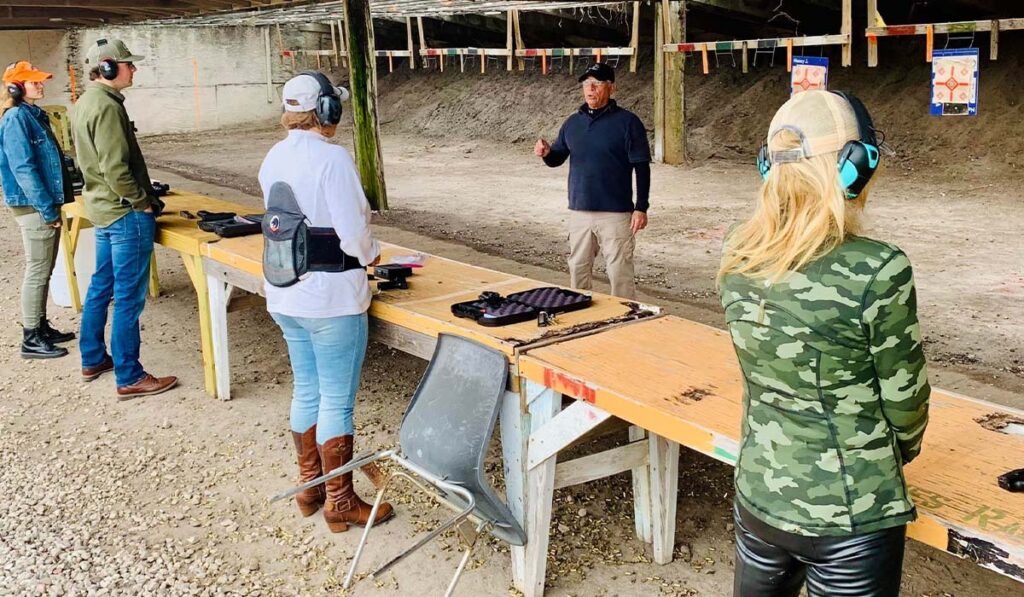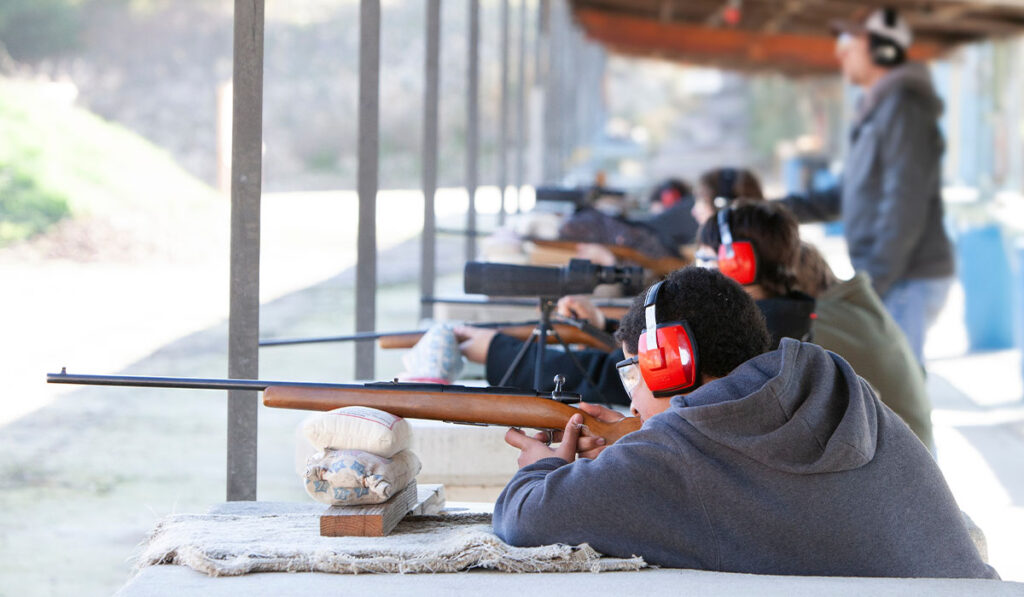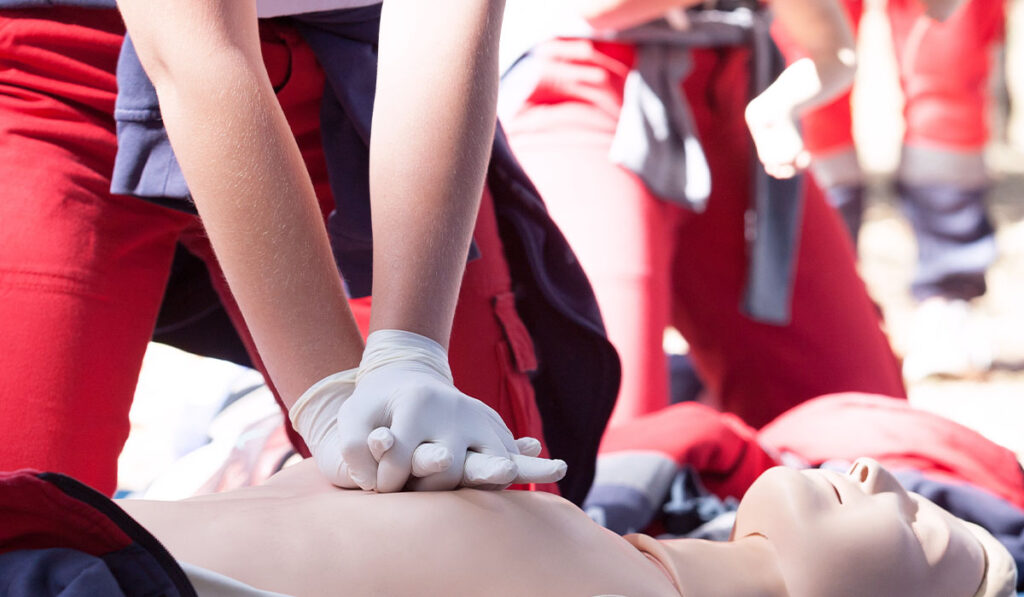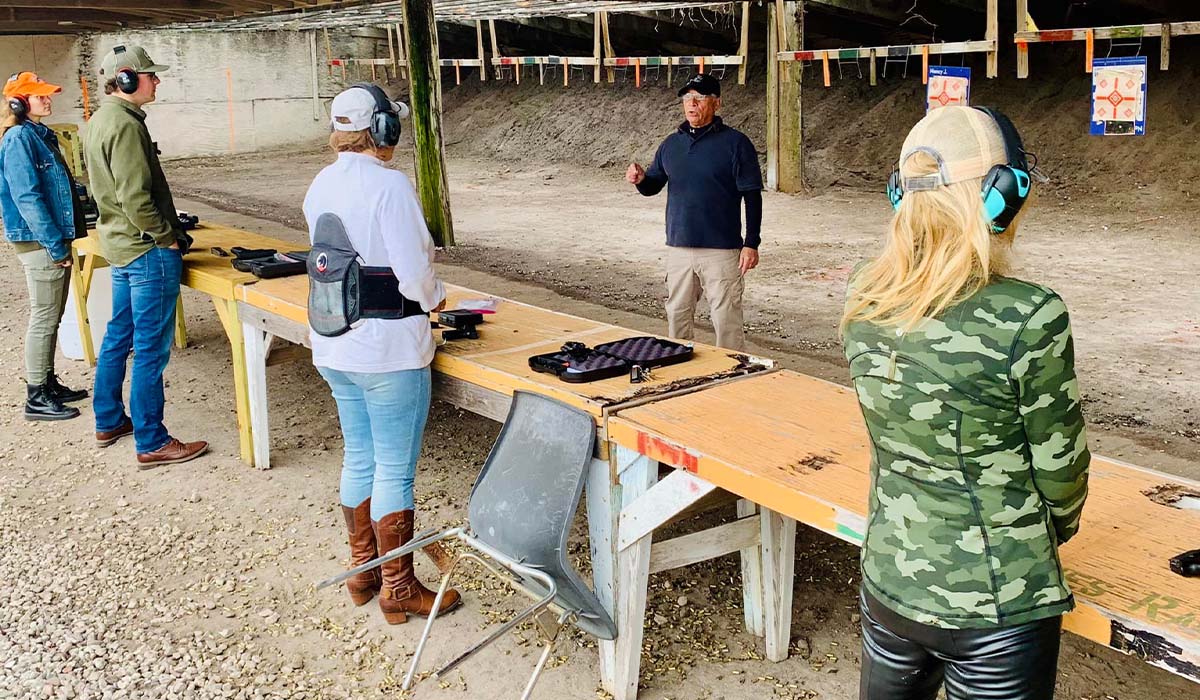When most people go to a range or training center, they make the assumption that all of the instructors there are well trained, thoroughly understand their subject matter, are proven educators and have great supporting educational materials.
Unfortunately, in a lot of cases, this is far from reality. Here is an example. Several years ago when everyone was buying guns for personal protection, the training business was hot. I knew several individuals that bought guns for the first time in their lives, took the NRA pistol class, then immediately took the NRA instructor class, and soon thereafter were advertising and offering firearms training classes.
In another situation, I once heard a firearms instructor tell his students they could do something that was clearly illegal. And finally, I watched a firearms instructor brag about teaching an elderly lady to shoot an AR-15, which he told her was the best home defense weapon. These are just a few examples of the many inappropriate, incorrect, and inaccurate things I have seen and heard in regard to firearms instructors.
Finding a Class Worth Your Time

In most cases, you are going to pay a substantial sum of money to take a course and you are going to commit at least half a day of your time. In addition, your desire is to learn as much as possible so you can capitalize on the educational experience.
This is important, as you are learning about weapons management. So here are my recommendations as to finding a well-qualified instructor when seeking any firearms class.
First and foremost, go to their website and read about the instructors. If there is nothing on the site about their qualifications, I suggest you choose another training program.
Any well-trained experienced instructor is willing to provide any and all information on their training and background. Well-trained instructors want you to have confidence in them so they are happy to share information about their teaching and training experience.
If there is no information on the range or training facilities website, call and ask questions.
Here is a list of questions you want the answer to before taking any weapons class:
- How long has the instructor been teaching firearms classes?
- How many classes have they taught?
- Do they teach any other classes?
- What is their teaching experience?
- Where did they get their training/ experience?
- What firearms teaching or related certifications do they have?
- Are they insured?
- Is this their full-time job? If not, what is their full-time job?
Now let’s break down each question, so you understand the reason for asking it.
1. How long has the instructor been teaching firearms classes?
This is a vital question. Everyone, including me, had to start somewhere, so everyone at one point was a new instructor. However, in general, you would like to have an instructor that has been teaching for a long time.
Again, the information from this question will be used along with the data from the other questions below. You will see why. But Yes, you wish to choose an instructor that has been teaching this class a long time.
2. How many classes have they taught?
This is the second part of question 1. Because the number of classes taught is equally, if not more, important than the years as an instructor. I know instructors that have not taught a class in years.
Thus, they may have been an instructor for five years, but only taught three classes. Ideally, you want an instructor that has taught at least 20 classes per year, this is approximately 2 classes per month. If they are not teaching at least two classes per month, then it is hard to stay on top of your topic.
3. Do they teach other classes?
An instructor that is devoted to teaching firearms classes usually teaches more than one level. Please note I said “usually”, there is clearly nothing wrong with the instructor that focuses on a specific level of training.
But in most cases, teachers are about teaching and have a broad knowledge base that enables them to teach more than one topic. So if you identify an instructor that teaches a range of weapons classes, then you are more likely to get an instructor that has a broad knowledge of the subject matter.
4. What is their teaching experience?

Teaching like public speaking is an art. It takes a long time to learn how to teach well and understand the needs of the students. In my time, I have seen instructors that just read the slides given to them, not really understanding the content of the slide.
I have seen many instructors that talk more about themselves than the course content. I have also listened to highly trained and skilled professionals that could not talk in front of a crowd and never mind teaching effectively.
Teaching is an art, and if you cannot communicate the content in an easy to listen to format-and have a deep understanding of your topic, then you are more than likely not a good teacher.
I was personally blessed by having one of the greatest teachers and presenters teach me the art of public speaking when I was early in my educational career. I had an incredibly talented and successful teacher mentor me on teaching skills and he was instrumental in developing me into an excellent speaker and educator.
I strongly feel this is one of the most important aspects of teaching a class. If you just stand up there and read the slides, then no one really learns much. If you do not have a solid knowledge base of the subject matter, then you most likely will not convey the message well.
This is where experience comes in as a teacher; the more experienced the teacher the more you will learn regardless of the slides.
So when learning about your instructor, it would be beneficial if they taught other classes. Is an instructor at their job, taught in prior jobs, or giving presentations to civic and community groups? You will get so much more out of a good orator than a poor one.
5. Where did they get their training and experience?
This is another very important question. To be a good instructor you must have good training. Some of which may be formal training and the rest hands-on experience in applying that training. There are several ways to get good training and experience.
First, just because you have instructor certifications, as I mentioned above, does mean you have good training. So you should ask about the instructor’s training background. I place military training at the top of the list.
Many that have been in the military have received extensive weapons training and experience. In most cases, they are exceedingly knowledgeable in weapons management and shooting principles.
Secondly, specialized law enforcement (LE) professionals, refer to those on SWAT teams or warrant serving teams, or rescue teams. These LE professionals get far more weapons time and experience than the patrol officer.
Unfortunately, in most agencies, patrol officers actually get very little time shooting their weapons. The third area is private security. In this case, I am referring to armed private security and DOD contract professionals. Unfortunately, just like many members of the military, patrol officers, most armed private security officers get very little weapons training.
Do not be afraid to ask for a list of the training classes the instructor has taken. Again, if the instructor is well qualified they will have no trouble sharing this with you.
Instructors that have taken their entire training courses from the same organization have received the same doctrine. Thus, they have only been exposed to one way of doing things or one philosophy.
I think diverse training is the key to really understanding your subject matter. Thus, I would seek instructors that have taken courses and/or classes from more than one organization.
6. What firearms teaching or related certifications do they have?
This is another key set of information you need to know about your instructor. If they only have one certification, then I would be concerned.
Some of the certifications instructors may possess are NRA Pistol, NRA Home Defense, NRA Rifle, US Conceal Carry Firearms Instructor, A State License to teach firearms classes, and Law Enforcement Certifications for various weapons classes. Quality certifications and good experience make for some of the best instructors.
7.) Are they insured?
Many firearms instructors are hired on a “contract labor” basis or are not employees of the range. Thus, you want to be sure they have professional liability insurance.
There are many organizations in particular the NRA and US Conceal Carry that offer insurance policies for instructors. Ask to see their certificate of insurance. Don’t just take their word that they have liability insurance.
8.) Is this their full time job? If not, what is it?
This is a kinda personal question but can be very helpful in understanding the experience level of your instructor. If they teach one class a month and work in a non-firearms-related occupation, then there is a greater chance they will not be current on the subject matter.
However, if they work in a firearms-related field and are exposed to weapons on a regular basis then the likelihood they are more up to speed on firearms is greater.
9.) Does your firearms instructor have any medical training and a first aid kit?

Every firearms instructor should have some emergency medical training. There are a variety of first aid classes offered to the general public and your instructor should be trained in at least one of those who can be capable of managing medical emergencies should they, unfortunately, occur during a class.
At a minimum your instructor should have a basic first aid/CPR course, better yet they are or have been an EMT, paramedic, combat medic, or nurse. Naturally, all instructors do their best to prevent injuries during training, but in some cases, they do happen and you want your instructor capable of managing the injury.
Based on that, they should have a first aid kit readily available during the class with the supplies potentially needed to treat injuries possible during training.
As mentioned in the first part of this article, I feel strongly that all persons owning a firearm should take a training class and be as well versed with their firearm as possible. Then practice practice, and practice your weapons management skills.
But with that in mind, anyone owning a firearm should get the most training they can and stand on top of their skills. I want everyone to get the most out of your firearms class.
Ending Note: I wish to give a loud shout to Karl W., Kurt M., Levi T. Mike E., and Brian H. for reviewing the article and making it better. Thanks, guys! Without your input, these articles would not be as smooth.



